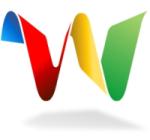 There’s no denying that the more I think about Google Wave, the more interested I get. My inner geek was applauding even when I first saw it in action on Saturday, but it’s only after a lot more thinking, and watching the presentation that you can view on the Wave homepage, that I’m starting to glimpse some of the ways that it might positively affect the way that I work, both as a scientist and a science communicator.
There’s no denying that the more I think about Google Wave, the more interested I get. My inner geek was applauding even when I first saw it in action on Saturday, but it’s only after a lot more thinking, and watching the presentation that you can view on the Wave homepage, that I’m starting to glimpse some of the ways that it might positively affect the way that I work, both as a scientist and a science communicator.
The best way that I’ve managed to think of a ‘wave’ is as a unit of on-line communication. The clever bit is that a wave can be an e-mail conversation, an online chat, a collaborative document, or a blog post, or even a little bit of all of them, depending on how you and others choose to interact with it. The even more clever bit is that suddenly every interaction you’re making on the internet is now collected together in something which looks like a Gmail inbox. Not only does this make it a hell of a lot easier to keep track of everything you’re doing online, but it also means that all those people who will happily use e-mail, but look scared when people start talking about wikis, and Friendfeeds, and tweets, will get access to the capabilities of these services without being pushed out of their comfort zone. It is when I realised this that I started to get more excited about what Wave could do for me as a scientist, because the usefulness of any new technology is determined not just by what it does, but by how easy it is to get people to use it – and by making it look and behave like ‘Gmail++’, Google may have made it more likely that colleagues who do e-mail and Word documents, and not much else, will give it a go. Wave lowers the geek threshold for using interactive web tools.
Lets consider one example of where I think Wave might work well: liasing with co-authors. When you’ve finished the first draft of your latest paper, you send it out to your co-authors for their comments and corrections. Each person sends you back a different set of corrections, which you then have to merge together to produce the final document. It’s a pain, especially in the parts where your two co-authors demand mutually exclusive changes. Now for me, the obvious solution to this would be to get everyone to make the edits in a wiki, so that everyone is working concurrently on the same document, and can see who is making what changes. But, unlike a good number of my colleagues, I know what a wiki is, and would be comfortable with using one. With Wave, an editable document would just pop into your inbox, and you just tell your technophobic co-author to treat it like a Word document. Add to that the ability to insert discussions over particular changes, and it all gets much more interactive and efficient.
A few other thoughts on stuff you could do:
- At the conference: this post discussing the online “back channel” chatter at Science Online London observed that its potential usefulness was inhibited by the fragmentation between Twitter and Friendfeed, and the non-permanent record of the former. You could also add that the discussion is isolated from the talk itself. However, in the future you could create a wave with your slides, add a few notes, send it to all the people at the conference, and everyone can just interact with that. Even better, it could act as a venue for continuing debate after a talk, and would be a permanent record of both the presentation and the discussion around it. Indeed, a ‘poster wave’ might also be useful: how many times have you not had the time or opportunity to ask a question about a poster, due to crowding or the presenter not being present (it would also highlight which ones were perhaps exciting the most interest)?
- Virtual “group meetings”. New data to thrash out the meaning of, or a recently published paper to dissect? Post it to a wave, send it to any interested parties, and kick off a discussion not limited by the availability of meeting rooms or your fount of all knowledge being on a different continent. Given the importance of visualisation in geology, the smooth incorporation of multimedia in waves makes this far more feasible (and useful) for geologists than it perhaps has been up to now. On similar principles, the geoblogosphere could get together to produce a kick-ass collaborative post when reacting to say, a big earthquake.
- Overseeing student group projects. The replay option would allow us at the front of the class to more easily check on progress, and check that every student is making a contribution.
I could continue: for the geeky amongst us, I haven’t even talked about possible automation using robots yet! Feel free to discuss your own ideas in the comments. Could you have a field trip wave, for example?



Comments (5)